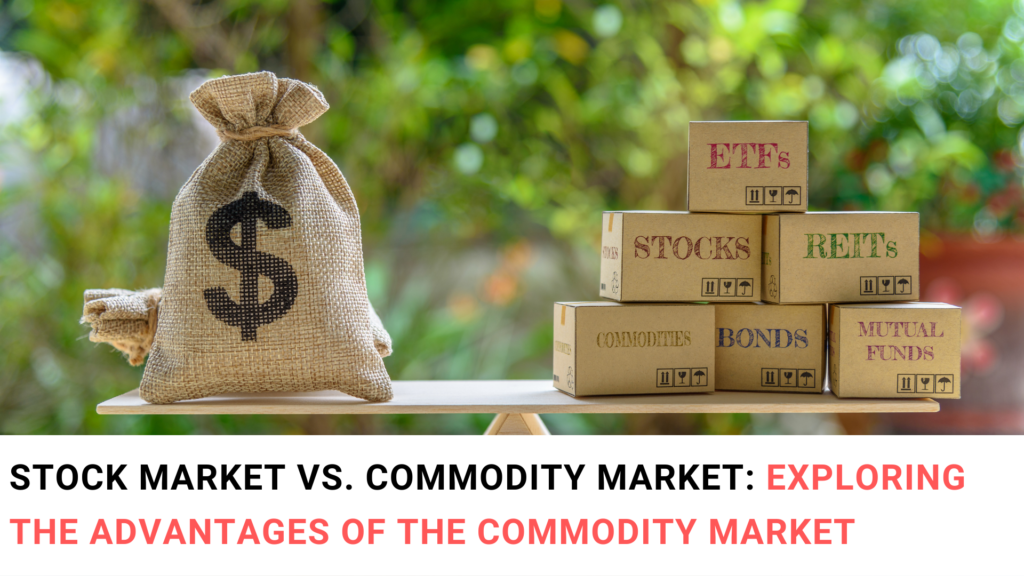
When it comes to investment opportunities, the stock market often takes the spotlight. However, the commodity market, despite being less widely discussed, offers unique advantages that investors should consider.
When you know the economy is down or some downturn is coming, it’s not easy to depend on the share market. That’s when you’ve got to focus on the commodities market.
Through this blog, we delve into the benefits of the commodity market and why it can be an advantageous option for investors.
Diversification:
The commodity market provides an avenue for diversification beyond traditional stock and bond investments. Commodities such as gold, silver, oil, natural gas, and agricultural products have their own distinct market dynamics that may not necessarily correlate with stock market movements. Adding commodities to an investment portfolio can reduce overall risk and enhance potential returns by spreading investments across different asset classes.
Inflation Hedge:
Commodities, particularly precious metals and energy resources, have historically acted as a hedge against inflation. When inflation rises, the value of fiat currencies tends to decline. However, commodities often experience price increases during inflationary periods due to increased demand and limited supply. Investing in commodities can help protect the purchasing power of your investments and provide a buffer against rising inflation.
Tangible Assets:
Unlike stocks or bonds, commodities are tangible assets that have inherent value. Precious metals, for example, are prized for their scarcity, industrial uses, and intrinsic worth. Owning tangible assets can provide a sense of security and stability, especially during times of economic uncertainty or market volatility.
Global Demand:
Commodities play a crucial role in the global economy, as they are the raw materials necessary for various industries to function. The demand for commodities remains relatively stable over time, driven by population growth, technological advancements, and infrastructure development. Investing in commodities allows you to participate in global economic growth and benefit from increased demand for these essential resources.
Inverse Correlation:
While stocks and commodities can exhibit positive correlations at times, certain commodities, such as gold, have shown an inverse relationship with stock market movements. During periods of economic downturns or stock market declines, investors often flock to gold as a safe haven, driving its price up. This inverse correlation can provide a hedge against stock market volatility and potentially offset losses in other investments.
Opportunities for Active Trading:
The commodity market offers opportunities for active traders to capitalize on short-term price movements. Commodity futures contracts allow traders to speculate on the price direction of commodities, enabling them to profit from both rising and falling prices. Active trading in the commodity market can provide potential returns through skilled analysis and timely decision-making.
It is important to note that investing in commodities also carries risks. Commodity prices can be influenced by various factors such as supply and demand dynamics, geopolitical events, weather conditions, and government regulations. Additionally, commodity investments may require specialized knowledge and understanding of market fundamentals.
Final Note:
While the stock market often takes centre stage, the commodity market offers distinct advantages for investors. Diversification, inflation hedging, tangible assets, global demand, inverse correlation with stocks, and active trading opportunities are some of the benefits that make the commodity market advantageous. As with any investment, careful research, risk assessment, and a well-rounded investment strategy are essential to harness the potential benefits of the commodity market.
